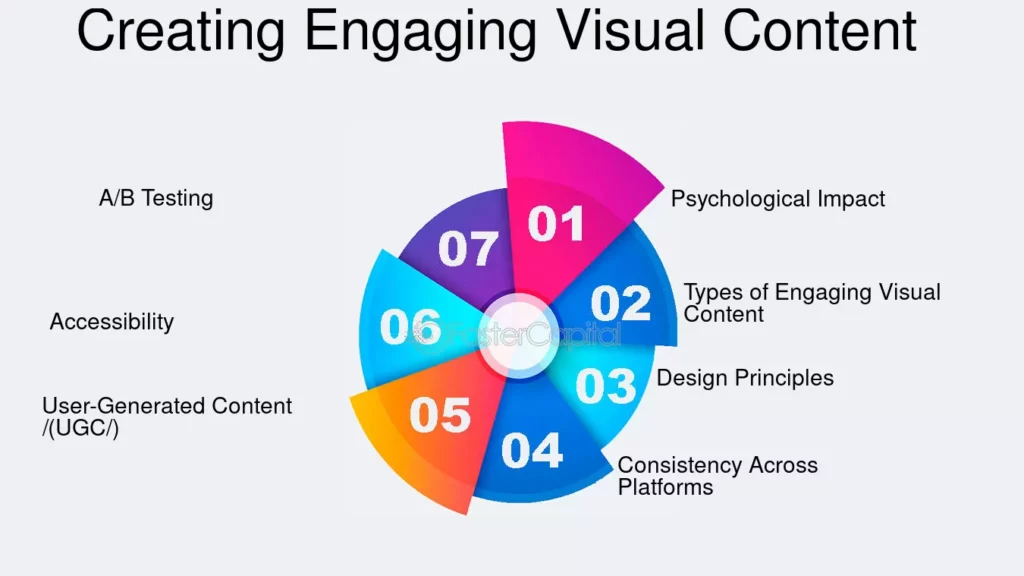Branded search has become a cornerstone of online marketing strategies, shaping how businesses engage with their audience and establish a strong digital presence. In today’s competitive landscape, understanding what branded search entails and how to enhance it is paramount for sustainable growth and success.
This article delves into the intricacies of branded search, its significance for businesses of all sizes, and actionable strategies to increase it. By unlocking the potential of branded search, companies can elevate their visibility, credibility, and ultimately, their bottom line.
Table of Contents
What is Branded Search?
Branded search embodies the digital footprint of a brand, representing the trend where users actively seek out a particular brand or its offerings through search engines like Google. Unlike generic searches that revolve around broader topics or products, branded searches involve specific queries that include the brand’s name or variations of it.
Essentially, when a user inputs a search query directly related to a brand, it signifies an intent to engage with that brand’s products, services, or content. This distinctive aspect of branded search sets it apart from generic search behavior and underlines its significance in the realm of digital marketing.
Examples of branded search queries vary in scope and specificity but are unified by their explicit reference to a particular brand. For instance, a user searching for Nike running shoes or Apple iPhone 12 is engaging in branded search by directly mentioning the brand name alongside the product they seek.
Similarly, queries such as McDonald’s menu prices or Tesla Model S specifications exemplify branded search, as users express their intent to gather information directly associated with these brands. Such queries demonstrate a level of brand recognition and preference, indicating a pre-existing awareness or affinity for the brands in question.
Why it Matters?
Branded search holds considerable importance for businesses across industries due to its multifaceted impact on brand visibility, customer engagement, and overall marketing effectiveness. Firstly, it serves as a barometer of brand awareness and perception, reflecting the extent to which consumers recognize and interact with a brand.
High volumes of branded search signify a strong brand presence and recall among consumers, indicating successful brand-building efforts. Branded search often indicates a higher level of purchase intent compared to generic searches, as users specifically seek out a particular brand’s offerings, signaling a potential conversion opportunity.
The benefits of increasing branded search extend beyond mere metrics, encompassing broader business objectives and strategic advantages. By enhancing branded search, businesses can solidify their position in the market, fortify brand loyalty, and mitigate the influence of competitors.
A surge in branded search can lead to improved organic search rankings as search engines perceive heightened brand visibility and relevance. Consequently, businesses stand to gain enhanced visibility, credibility, and revenue growth through concerted efforts to increase branded search.
Factors Influencing Branded Search
Brand recognition and awareness serve as fundamental drivers of branded search, shaping how consumers interact with and perceive brands in the digital sphere.
Brand Awareness
Brands with high levels of recognition and awareness are more likely to attract organic search traffic, as users actively seek out familiar brands when conducting online searches. Effective branding initiatives, including advertising campaigns, content marketing, and social media presence, play a pivotal role in enhancing brand recognition and awareness. They influence the frequency and volume of branded search queries.

Brand reputation and trust are critical determinants of branded search behavior, as consumers are inclined to seek out trusted brands when making purchasing decisions or seeking information. A positive brand reputation instills confidence and credibility among consumers. It prompts them to actively seek out a brand’s products or services through search engines.
Conversely, negative publicity or a tarnished reputation can deter consumers from engaging with a brand, leading to a decline in branded search volumes. Therefore, maintaining a positive brand image through consistent delivery of quality products, exemplary customer service, and transparent communication is essential for fostering trust and driving branded search.
Customer loyalty
Customer loyalty and advocacy play a significant role in influencing branded search patterns, as loyal customers are more likely to proactively search for a brand’s offerings and recommend them to others. Brands that prioritize customer satisfaction and cultivate strong relationships with their customer base are rewarded with increased branded search volumes. Satisfied customers often become brand advocates, spreading positive word-of-mouth and driving organic search traffic through their recommendations and referrals.
Competition
Competition and market positioning exert a profound influence on branded search dynamics as brands vie for visibility and relevance in crowded marketplaces. In competitive industries, brands must differentiate themselves and carve out a distinctive identity to attract and retain customers.
A strong market position enables brands to command greater mindshare and consumer attention, resulting in higher branded search volumes. Conversely, brands facing intense competition or market saturation may struggle to stand out, necessitating strategic marketing efforts to bolster brand visibility and drive branded search.
Work on Your Brand Awareness
Enhancing brand awareness is a multifaceted endeavor that requires you to increase the visibility and recognition of your brand among its target audience. One key approach to achieving this is through investing in branding initiatives.
This involves developing a cohesive brand identity that resonates with the values, aspirations, and preferences of the target market. By investing in elements such as logo design, brand messaging, and visual aesthetics, businesses can create a strong brand presence that leaves a lasting impression on consumers.
Social Media
Social media platforms have emerged as powerful tools for amplifying brand awareness and reaching a wider audience. Effectively leveraging social media channels enables brands to engage with consumers in real-time, share compelling content, and foster meaningful interactions.
Maintain an active presence on platforms like Facebook, Instagram, Twitter, and LinkedIn. This way, brands can cultivate a loyal following, drive user engagement, and ultimately, increase brand awareness. Moreover, social media offers valuable opportunities for targeted advertising and audience segmentation, allowing brands to tailor their messaging to specific demographics and interests.
Content Marketing
Content marketing serves as another integral component of brand awareness initiatives. It offers a strategic approach to attract, engage, and educate target audiences through valuable and relevant content.

Create high-quality content that addresses the needs, pain points, and interests of consumers. It will help brands position themselves as thought leaders and industry authorities within their respective niches. Content formats such as blog posts, articles, videos, infographics, and podcasts enable brands to showcase their expertise, share valuable insights, and establish a rapport with their audience.
Improve Online Presence
Improving online presence and visibility is essential for businesses seeking to expand their reach, attract more customers, and remain competitive in today’s digital landscape.
Search Engine Optimization
One crucial aspect of achieving this is optimizing the website for search engines. Search engine optimization (SEO) involves various techniques aimed at enhancing the website’s visibility in search engine results pages (SERPs).
This includes optimizing on-page elements such as meta tags, headings, and content, as well as improving site speed, mobile responsiveness, and user experience. By aligning the website with search engine algorithms and best practices, businesses can increase their chances of ranking higher in relevant search queries, thereby driving organic traffic and improving online visibility.
Business Listings
Another strategy to improve online presence is by claiming and optimizing business listings across online directories, review sites, and mapping services. This ensures that accurate and up-to-date information about the business is readily available to consumers when they search for relevant products or services.
Claiming business listings on platforms like Google My Business, Yelp, and Bing Places allows businesses to provide essential details such as address, phone number, hours of operation, and website link, making it easier for potential customers to find and engage with the brand. Optimizing these listings with compelling descriptions, high-quality images, and positive customer reviews further enhances visibility and credibility.
Paid Advertising
Brands can also utilize paid advertising strategically to improve online presence and visibility. Pay-per-click (PPC) advertising platforms such as Google Ads and social media advertising channels like Facebook Ads offer powerful tools for targeting specific audiences, promoting products or services, and driving traffic to the website.
By carefully selecting keywords, demographics, and ad placements, businesses can maximize the impact of their advertising campaigns and reach potential customers at various stages of the buying journey. Moreover, leveraging retargeting techniques allows businesses to re-engage with visitors who have previously interacted with their website, increasing brand visibility and driving conversions.
By implementing these strategies to optimize the website for search engines, claim and optimize business listings, and utilize paid advertising strategically, businesses can significantly enhance their online presence and visibility. This, in turn, leads to increased brand awareness, improved search engine rankings, and ultimately, greater opportunities for customer acquisition and business growth in the digital realm.
Create Compelling Brand Content
Creating compelling brand content is essential for businesses aiming to captivate and engage their target audience, build brand loyalty, and drive meaningful interactions.
Develop High-Quality, Relevant Content
A foundational aspect of this strategy is to develop high-quality, relevant content that resonates with the interests, needs, and aspirations of the audience. This involves conducting thorough research to understand the preferences and pain points of the target demographic and creating content that addresses these effectively. Whether it’s informative blog posts, educational articles, or entertaining videos, the key is to deliver value to the audience through content that is informative, entertaining, or inspirational.
Utilize Storytelling
Storytelling serves as a powerful tool for brands to connect with their audience on a deeper, more emotional level. By crafting compelling narratives that evoke emotions, provoke thought, and spark empathy, brands can forge stronger bonds with their audience and leave a lasting impression.
It allows brands to humanize their message, showcase their values and beliefs, and establish a unique identity that resonates with consumers. Whether it’s sharing the brand’s origin story, highlighting customer success stories, or conveying a powerful message through visual storytelling, brands can leverage storytelling to create authentic connections and foster brand loyalty.
Leverage Multimedia
In today’s multimedia landscape, brands have a plethora of options to engage their audience through various content formats. From engaging videos and interactive infographics to visually appealing images and immersive experiences, leveraging multimedia content is essential for capturing audience attention and driving engagement.

Multimedia content allows brands to convey complex ideas in a more digestible and engaging manner, catering to different learning styles and preferences. By incorporating a mix of text, visuals, audio, and interactive elements, brands can create immersive brand experiences that resonate with their audience across different channels and platforms.
Creating compelling brand content involves developing high-quality, relevant content that adds value to the audience, utilizing storytelling to forge emotional connections and convey brand identity, and leveraging multimedia content to captivate and engage the audience effectively. By focusing on these key elements and consistently delivering compelling content experiences, brands can enhance their visibility, build brand loyalty, and drive meaningful interactions with their target audience in the digital age.
Branded Search Blueprint
Enhancing branded search is not merely about increasing visibility but also about fostering meaningful connections with consumers and reinforcing brand identity. Understand the factors influencing branded search and implement actionable strategies such as enhancing brand awareness, improving online presence, and creating compelling content.
Brands can then position themselves for long-term success in the digital landscape. With a strategic approach to branded search, businesses can elevate their visibility, build brand loyalty, and drive sustainable growth. Embracing the power of branded search as a cornerstone of digital marketing ensures that businesses remain relevant, competitive, and influential in the ever-evolving marketplace.
Ready to take your brand’s online presence to the next level? Partner with EvolveDash today, and let us help you dominate the digital landscape!
FAQs
- How does branded search affect my SEO rankings?
Branded search can positively impact your SEO rankings. When users search specifically for your brand, search engines interpret this as a sign of relevance and trust. This can improve your website’s authority, leading to higher rankings for both branded and non-branded keywords.
- Can branded search help in increasing customer loyalty?
Yes, branded search can increase customer loyalty. When customers actively search for your brand, it indicates a level of familiarity and trust. Brands that have strong branded search activity often foster deeper connections, leading to repeat business and customer advocacy.
- Is paid advertising necessary to boost branded search?
Paid advertising is not strictly necessary, but it can help increase branded search volume. Ads can boost visibility for your brand, especially in competitive industries, driving more people to search for your brand. Over time, organic branded searches can increase as your visibility and recognition grow.
- How can I track the success of branded search efforts?
You can track the success of branded search efforts through analytics tools like Google Analytics or Google Search Console. Monitor metrics like search volume, click-through rates (CTR), and keyword rankings for your brand name. Increased branded search traffic and higher rankings are indicators of success.
- How do competitors influence my branded search volume?
Competitors can influence your branded search volume in several ways. If they are more visible or have stronger marketing campaigns, they might overshadow your brand. Conversely, if your brand outperforms competitors in visibility and reputation, it could lead to higher branded search volume. Keep an eye on competitor activity to stay ahead in search rankings.



















